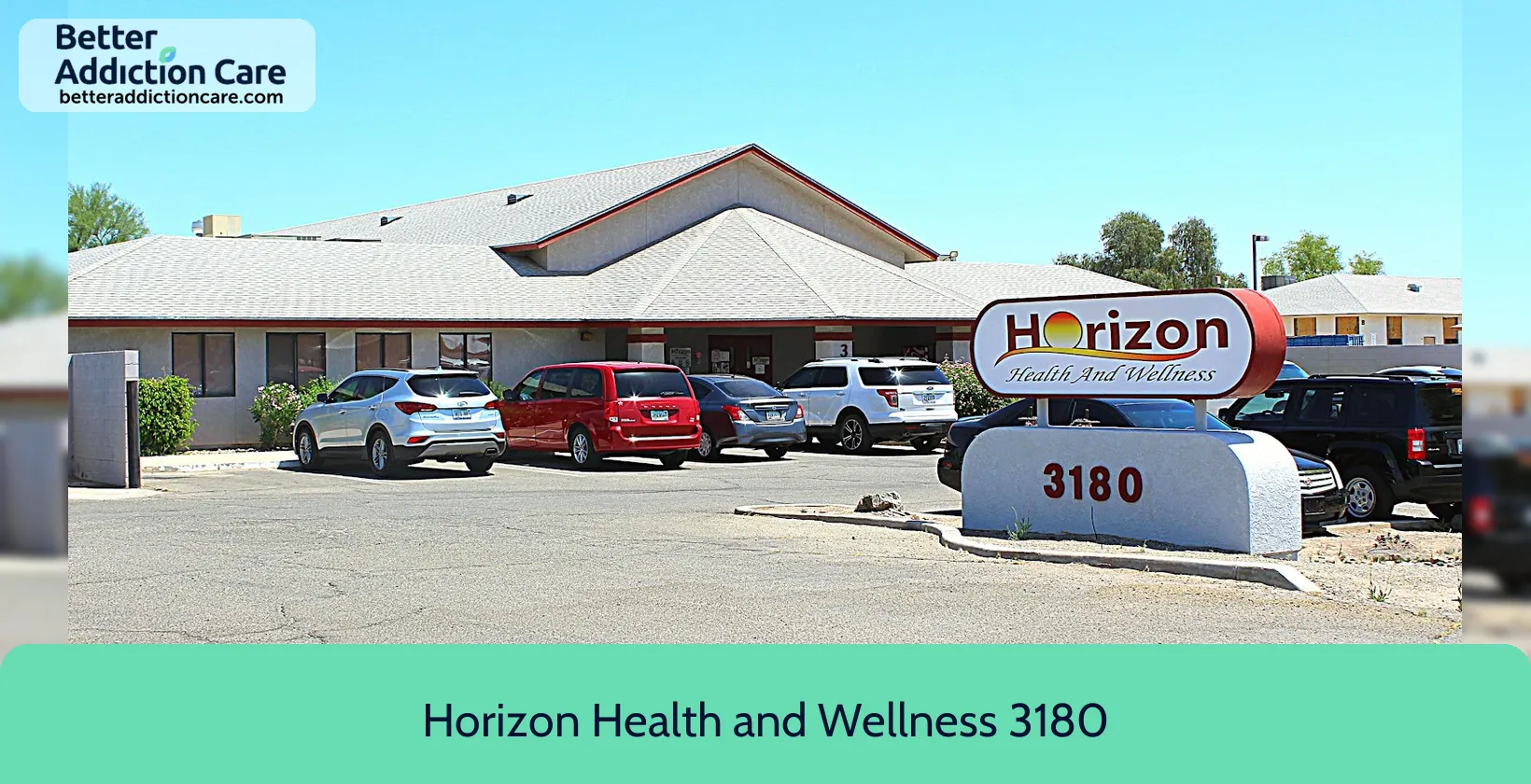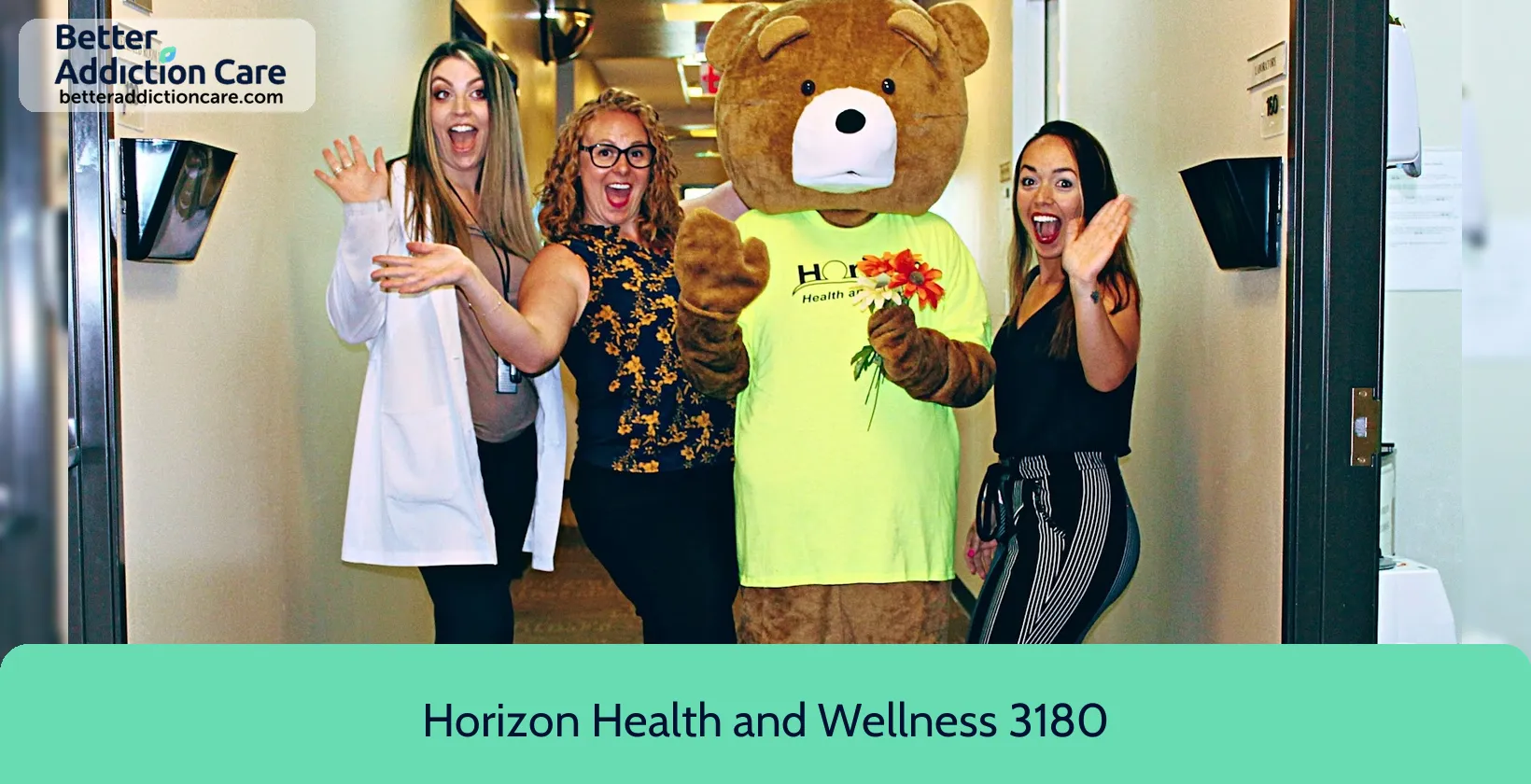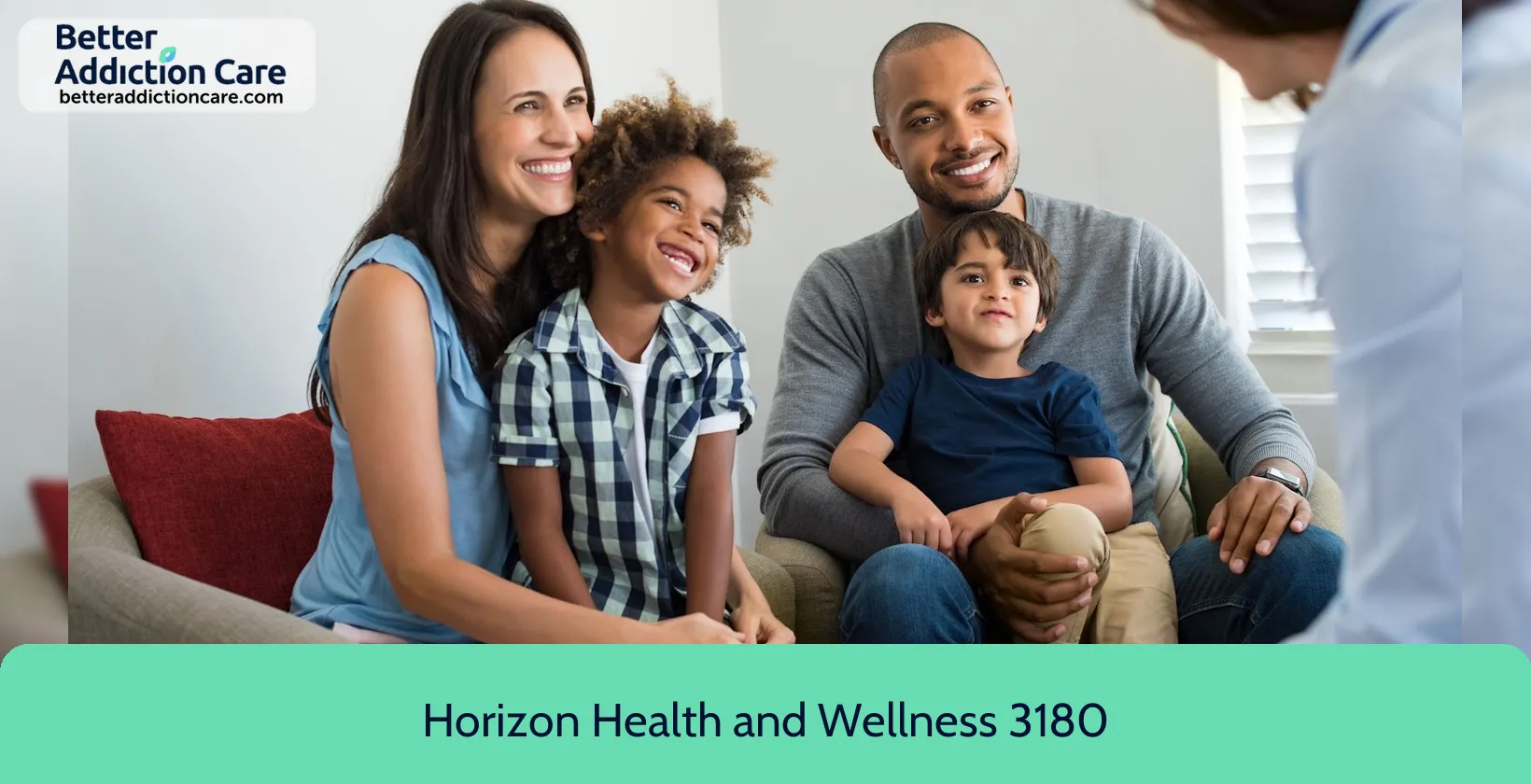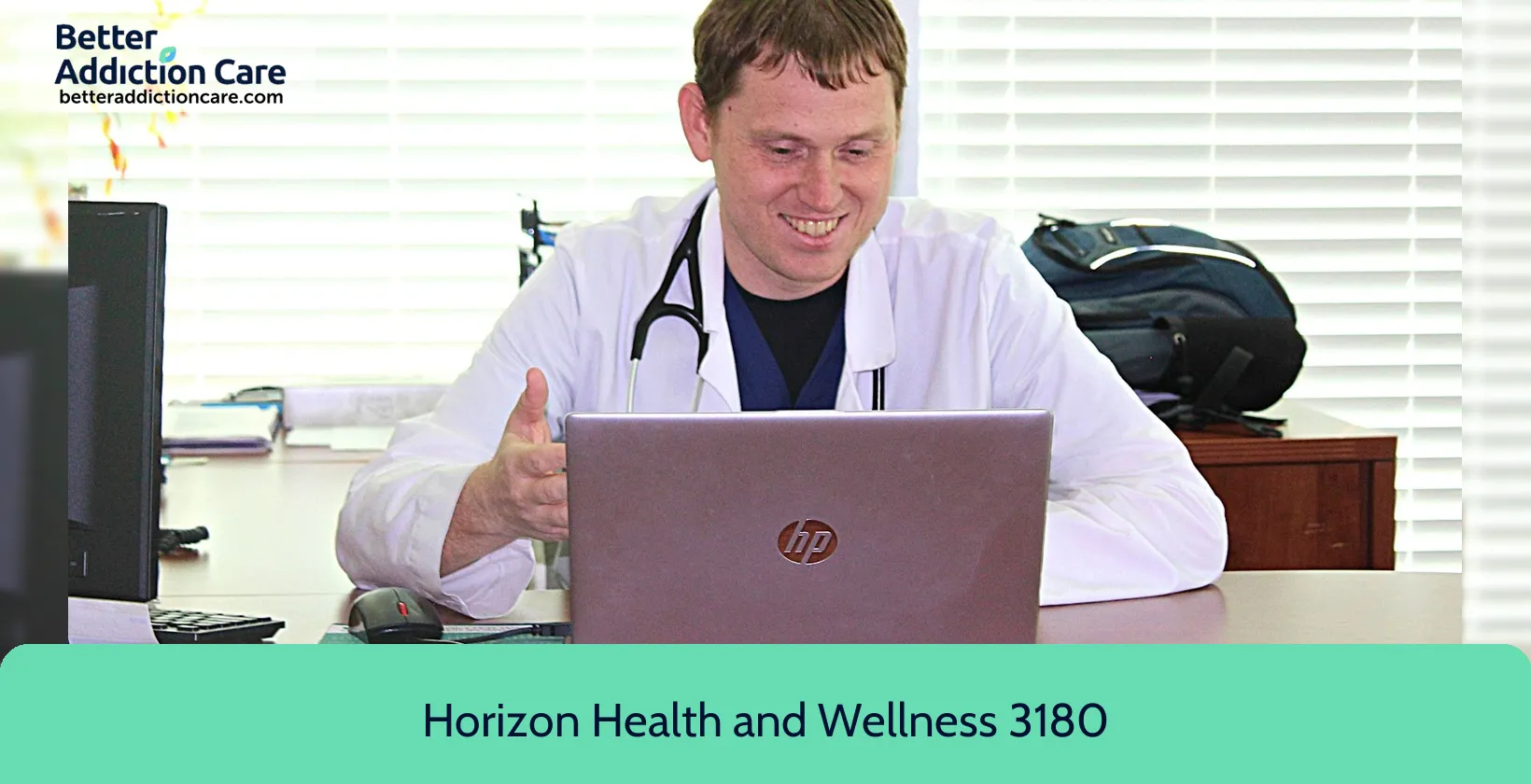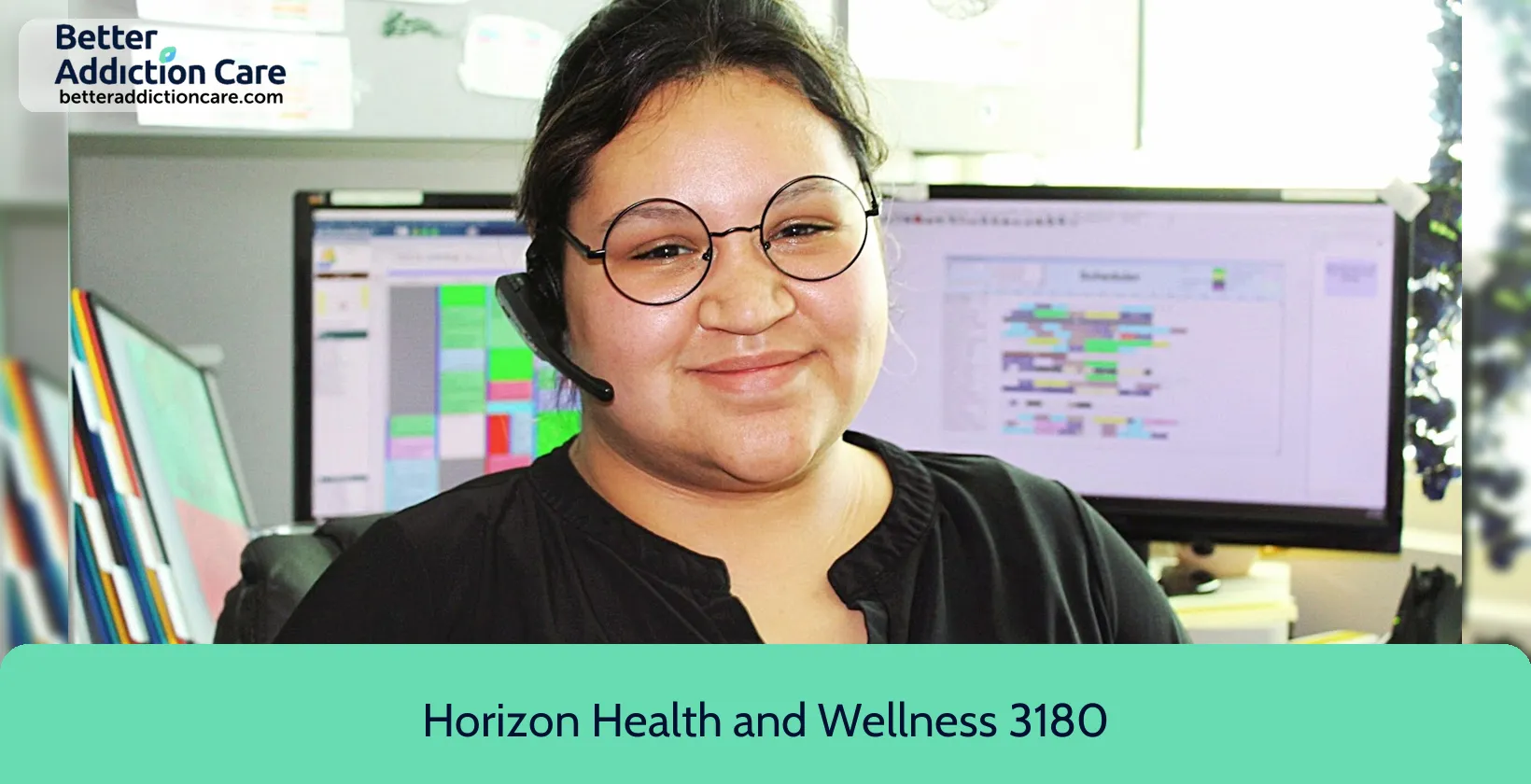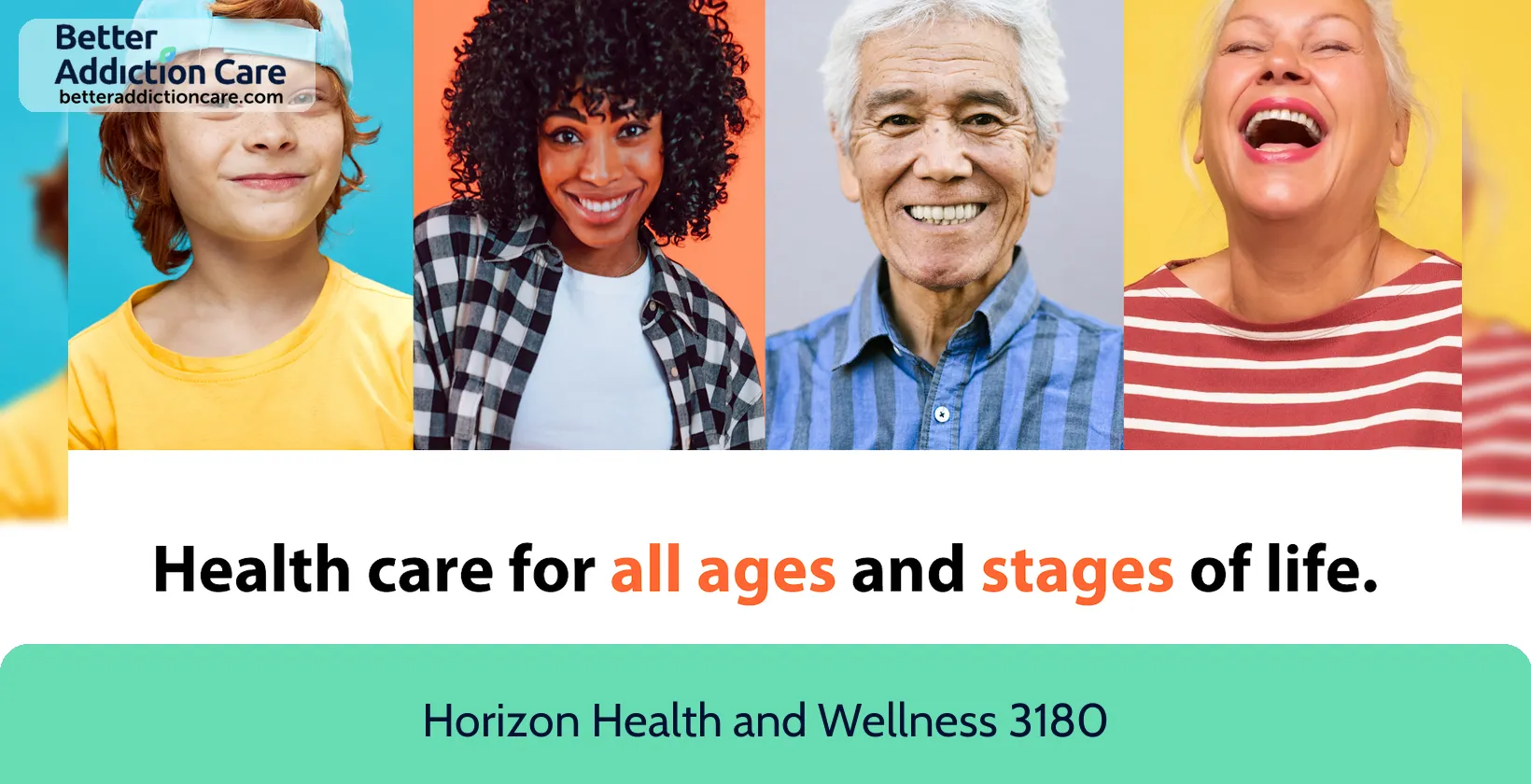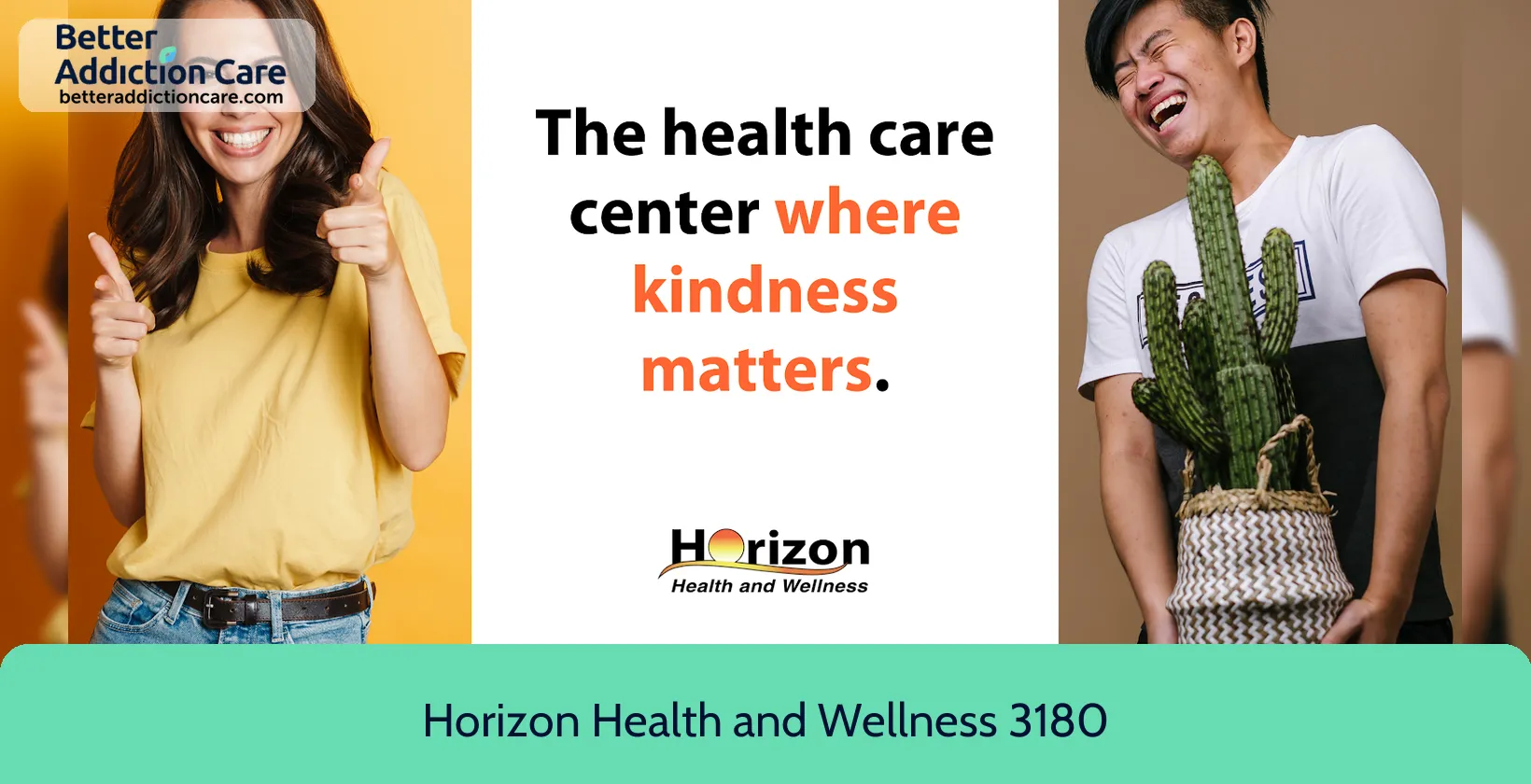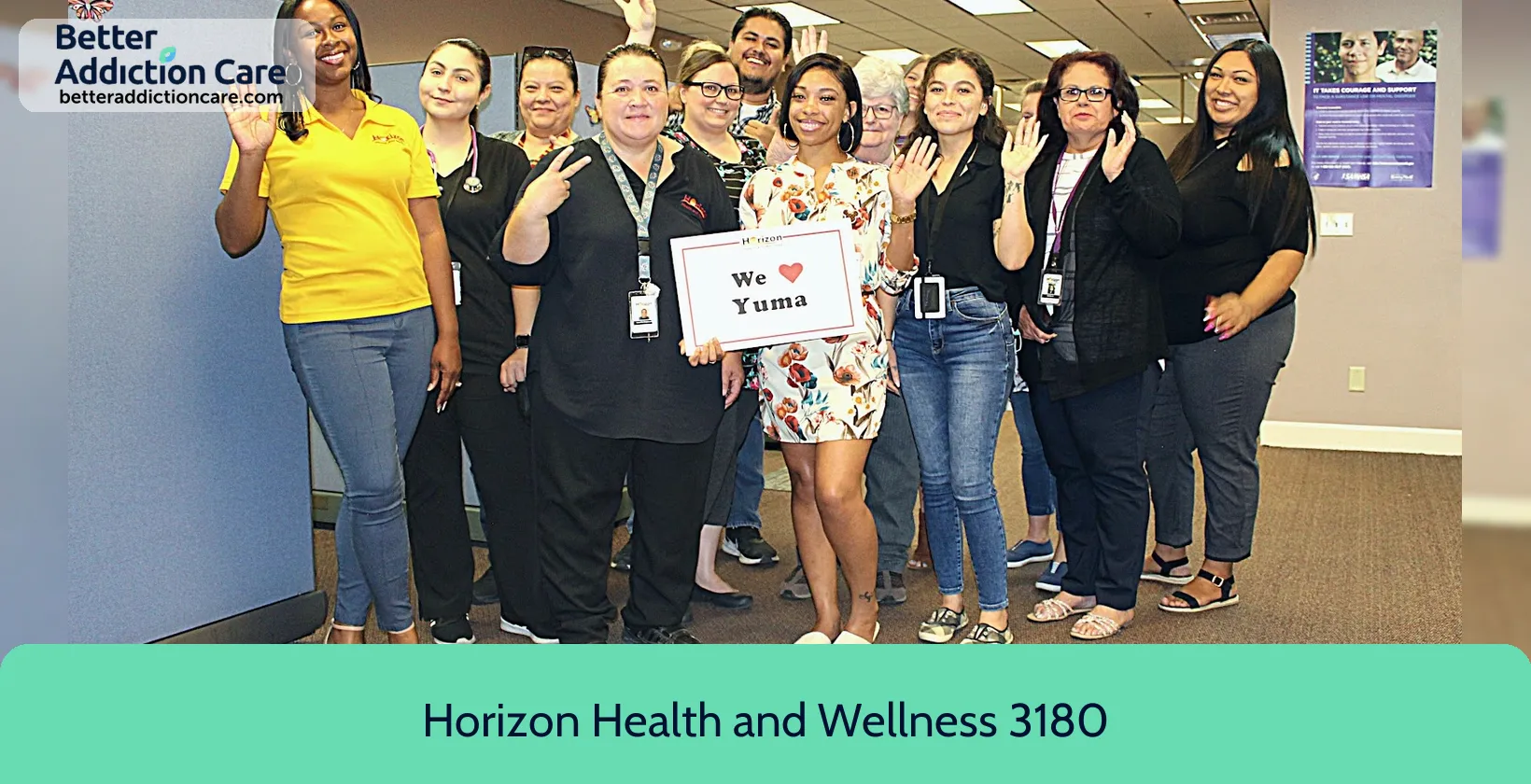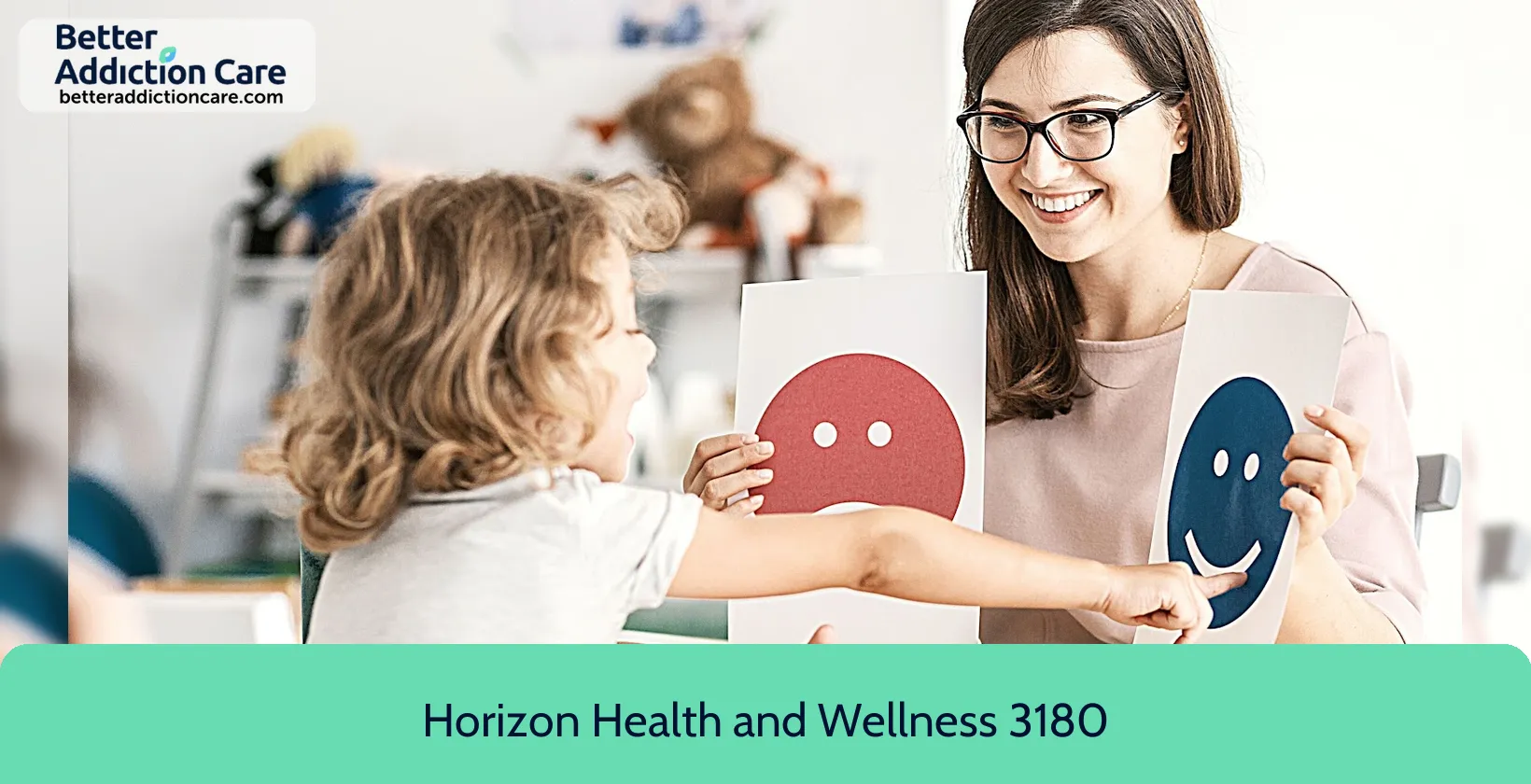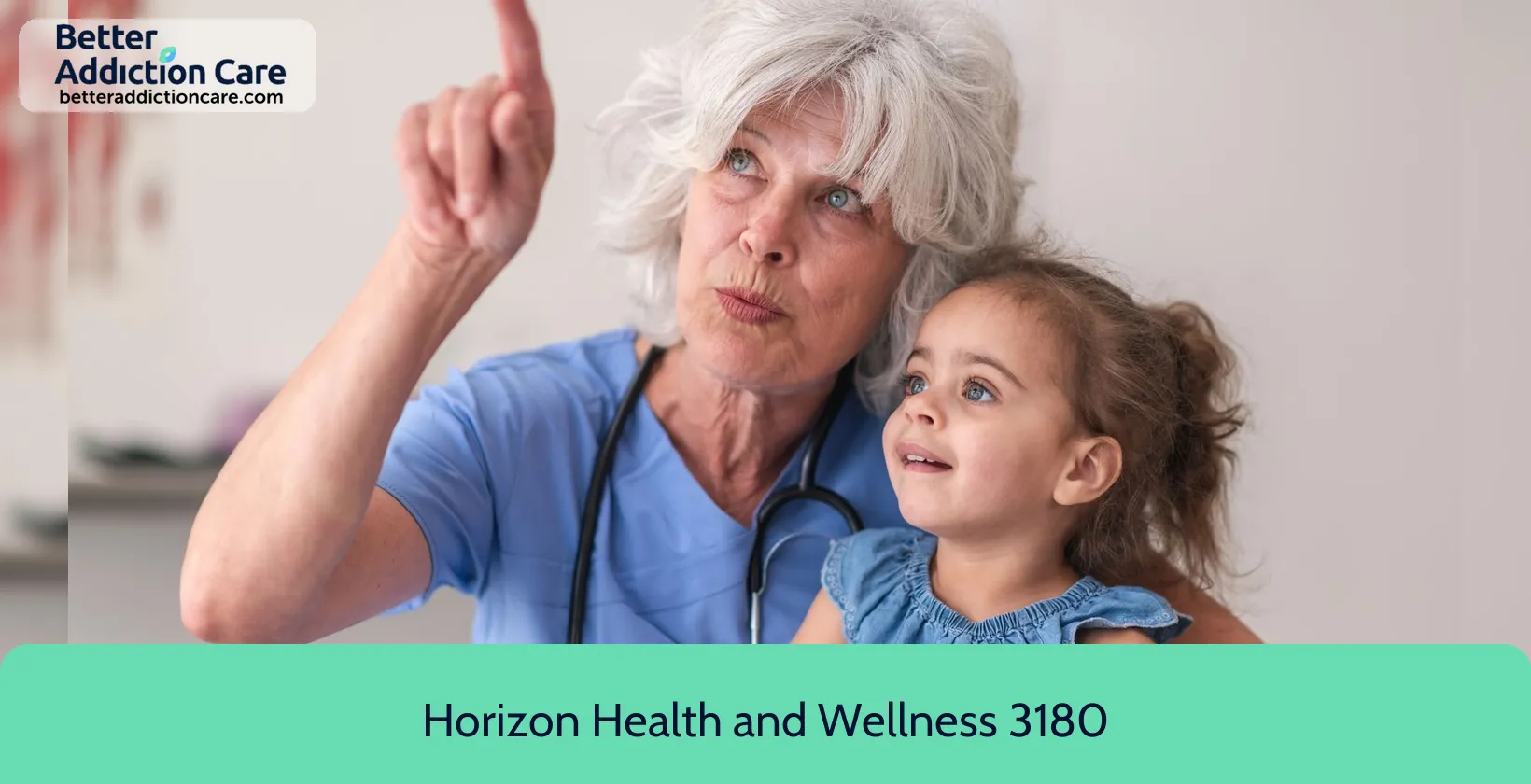Horizon Health and Wellness 3180 E. 40th St
Overview
Horizon Health and Wellness 3180 E. 40th St is a substance abuse treatment center for people seeking treatment near Yuma County. As part of their treatment modalities for recovery, Horizon Health and Wellness 3180 E. 40th St provides group counseling, individual psychotherapy, and family counseling during treatment. Horizon Health and Wellness 3180 E. 40th St is located in Yuma, Arizona, accepting medicaid for treatment.
Horizon Health and Wellness 3180 E. 40th St at a Glance
Payment Options
- Medicaid
- Private health insurance
- Cash or self-payment
- State-financed health insurance plan other than Medicaid
- Sliding fee scale (fee is based on income and other factors)
Assessments
- Comprehensive mental health assessment
- Comprehensive substance use assessment
Age Groups
- Adults
- Children/adolescents
- Young adults
Operation
- Private non-profit organization
Highlights About Horizon Health and Wellness 3180 E. 40th St
7.00/10
With an overall rating of 7.00/10, this facility has following balanced range of services. Alcohol Rehabilitation: 8.00/10, Drug Rehab and Detox: 6.00/10, Insurance and Payments: 6.80/10, Treatment Options: 7.21/10.-
Alcohol Rehabilitation 8.00
-
Treatment Options 7.21
-
Insurance and Payments 6.80
-
Drug Rehab and Detox 6.00
Accreditations
Commission on Accreditation of Rehabilitation Facilities (CARF):

Established in 1966, the non-profit organization known as the Commission on Accreditation of Rehabilitation Facilities (CARF) has a dedicated focus on accrediting rehabilitation organizations. CARF's primary mission is to assist service providers, particularly rehabilitation facilities, in upholding and promoting the highest standards of care.
Registration: 233324
The Joint Commission:

The Joint Commission accreditation for addiction and behavioral health is a prestigious recognition signifying a facility's commitment to delivering high-quality care and safety for individuals dealing with substance abuse and mental health issues. It involves rigorous evaluations and assessments, ensuring patients receive evidence-based treatment and exceptional care. This accreditation demonstrates a facility's dedication to continuous improvement and ethical practices, building trust among patients and healthcare professionals seeking top-tier addiction and behavioral health services.
Treatment At Horizon Health and Wellness 3180 E. 40th St
Treatment Conditions
- Mental health treatment
- Alcoholism
- Opioid Addiction
- Substance use treatment
- Co-occurring Disorders
Care Levels
- Intensive outpatient treatment
- Detoxification
- Aftercare
- Outpatient
- Hospital inpatient treatment
Treatment Modalities
- Group counseling
- Individual psychotherapy
- Family counseling
- Marital/couples counseling
- Life Skills

Additional Locations
Get Help Now
Common Questions About Horizon Health and Wellness 3180 E. 40th St
Contact Information
Other Facilities in Yuma

6.74

7.09
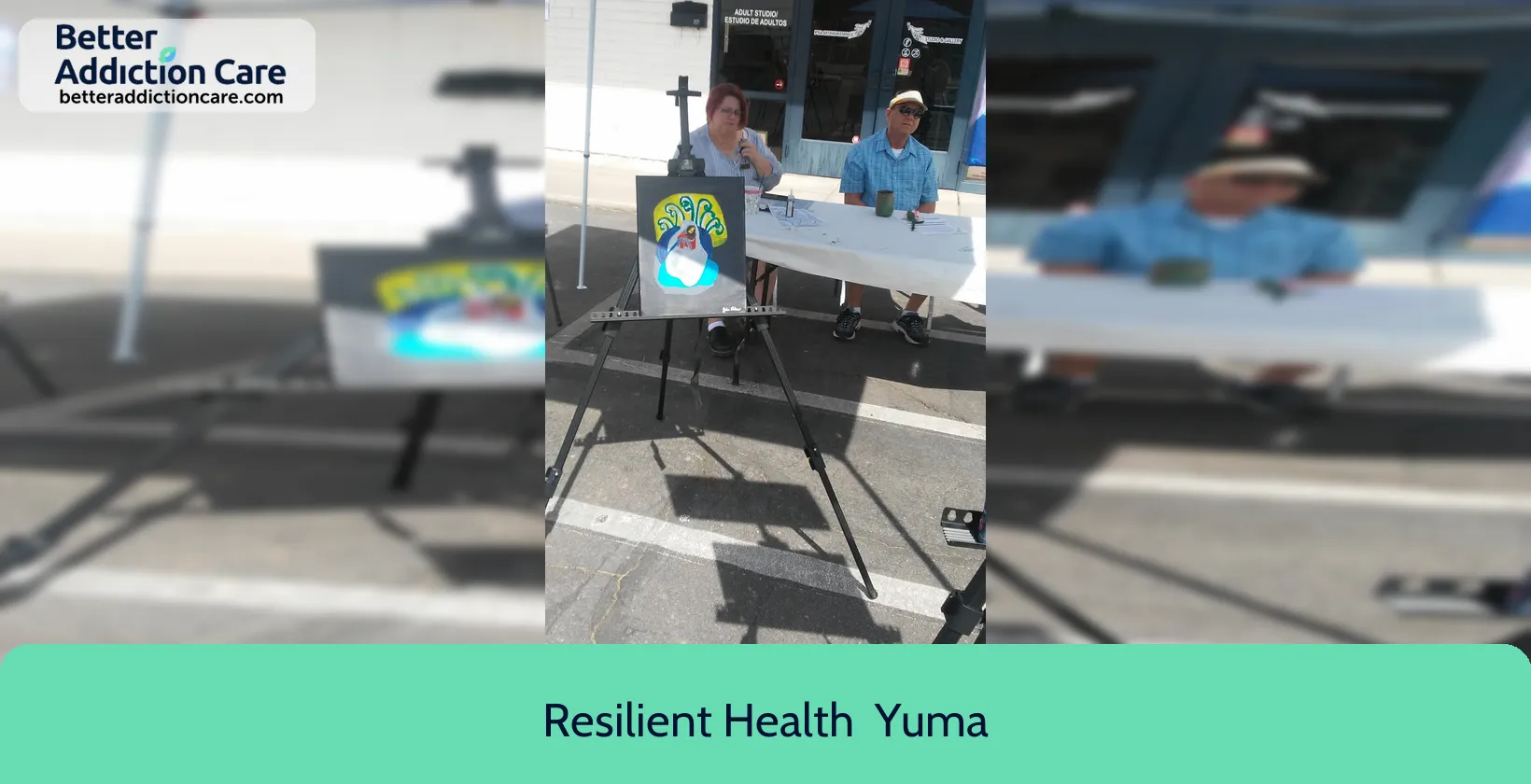
6.71
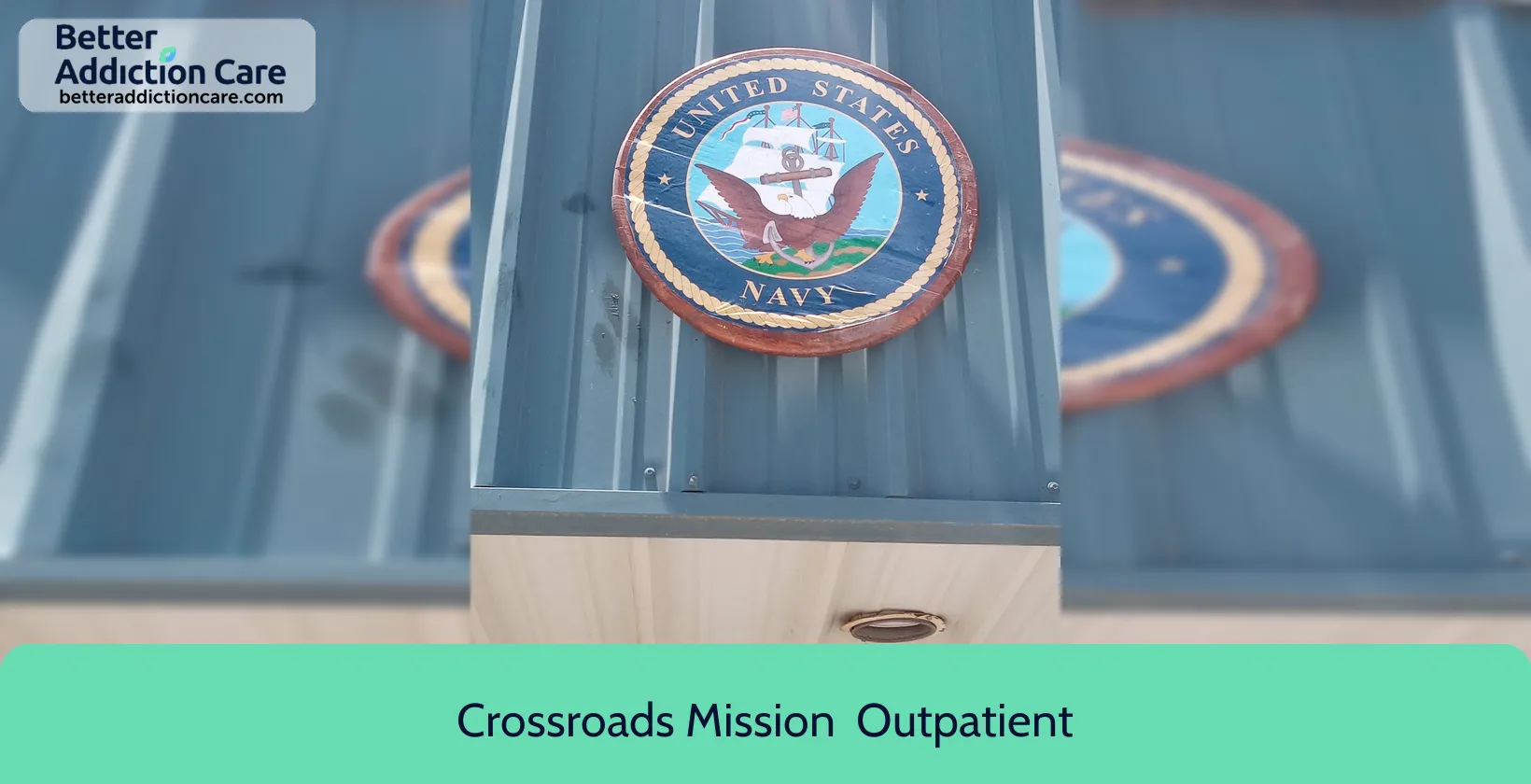
6.67
DISCLAIMER: The facility name, logo and brand are the property and registered trademarks of Crossroads Mission - Outpatient, and are being used for identification and informational purposes only. Use of these names, logos and brands shall not imply endorsement. BetterAddictionCare.com is not affiliated with or sponsored by Crossroads Mission - Outpatient.
